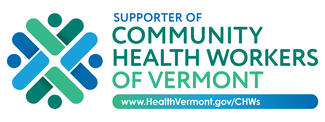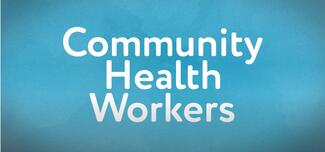Community Health Workers (CHWs) play a critical role in the health of our communities. They link diverse and underserved populations to health and social service systems.
A Community Health Worker (CHW) is a front-line public health professional who is a trusted member of or has a close understanding of the community being served.

A CHW uses a person-centered approach to build trusting relationships that enable the CHW to serve as a liaison between health and social services and the community to facilitate access to services and improve the quality and cultural and linguistic competence of service delivery.
In addition, a CHW increases self-sufficiency, well-being, and positive health outcomes through a range of activities such as outreach, community education, supportive guidance, self-management, coaching and the provision of social support and advocacy.
Learn more about Community Health Workers in Vermont in this video!

